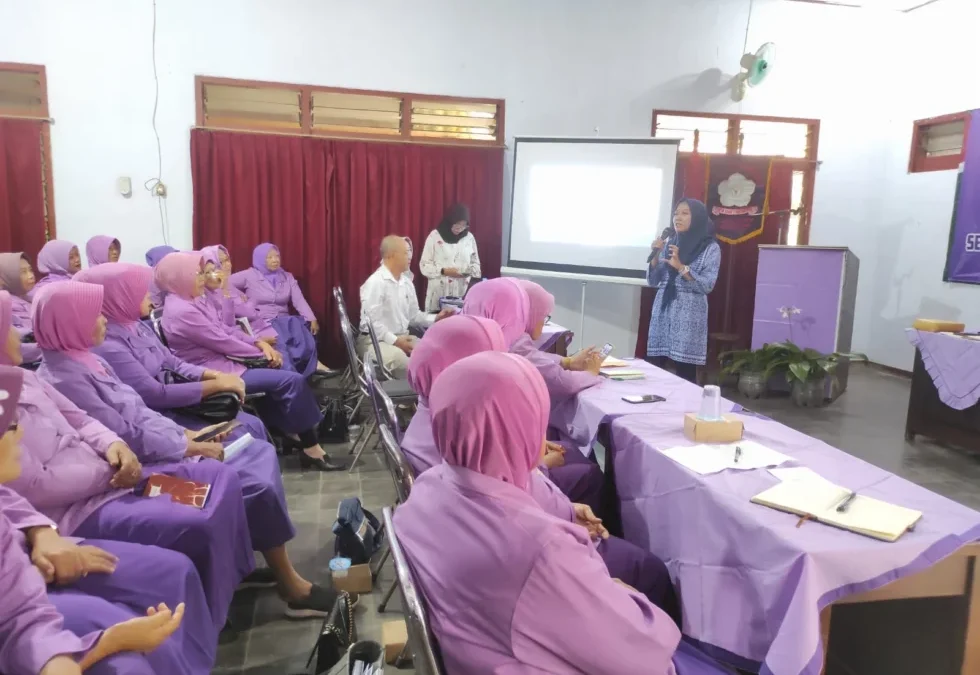The Community Service Team from the Faculty of Social and Political Sciences, Universitas Jember, in collaboration with the Jember Branch of the Retired Military Wives Association, conducted a digital literacy training for retired military wives. Titled “Digital-Savvy Women: Strategies for Safely Tapping into Economic Potential in the Digital Era,” the event was attended by 70 participants, including chairs and secretaries of the association from various sub-districts in Jember Regency.
Held at the association’s secretariat on Jalan Bengawan Solo, Jember, the event aimed to identify potential resources that could be utilized by elderly women within the association. Participants not only learned how to develop home-based businesses through social media but also gained a deeper understanding of digital literacy and strategies for leveraging the internet to explore economic opportunities.
Sri Ismiati Yahadhi, the chair of the Jember Retired Military Wives Association, expressed her delight at the event. She believed that this activity opened up new perspectives on the economic potential of the members, particularly in developing home-based businesses.
“It’s great. I just found out that many of my members have home-based businesses. However, their marketing has been suboptimal, limited to their own circles. Understandably, they are older and not very familiar with the internet. Therefore, this event is very beneficial,” said Ismiati.
Ismiati stated that this event marked the beginning of the Jember Retired Military Wives Association’s involvement in the digital economy. With adequate digital literacy, she hoped that elderly women in the community could maximize their potential in the increasingly advanced technological era. She expressed her desire for Universitas Jember to provide follow-up mentoring for members who had businesses.
Sari Dewi Poerwanti, one of the speakers, emphasized that the digital world not only offered significant economic potential but also posed various fraud risks. She highlighted the importance of understanding common online scams.
“Whatever we do, whether selling or buying goods online, we are both susceptible to being scammed. For example, you buy a cellphone, but you receive soap instead. Therefore, we must understand the patterns and how to deal with them,” said Sari Dewi.
According to Sari, the team of lecturers, including Nurcahyaning Dwi Kusumaningrum, Nurina Adi Paramitha, Sari Dewi Poerwanti, Sukron Makmun, and Akhmad Ganefo, provided materials on strategies for using the digital world safely and productively from their respective academic perspectives.
“With good digital literacy, participants are expected to be more empowered in developing their economic potential while avoiding the various risks in the digital world,” concluded Sari.

